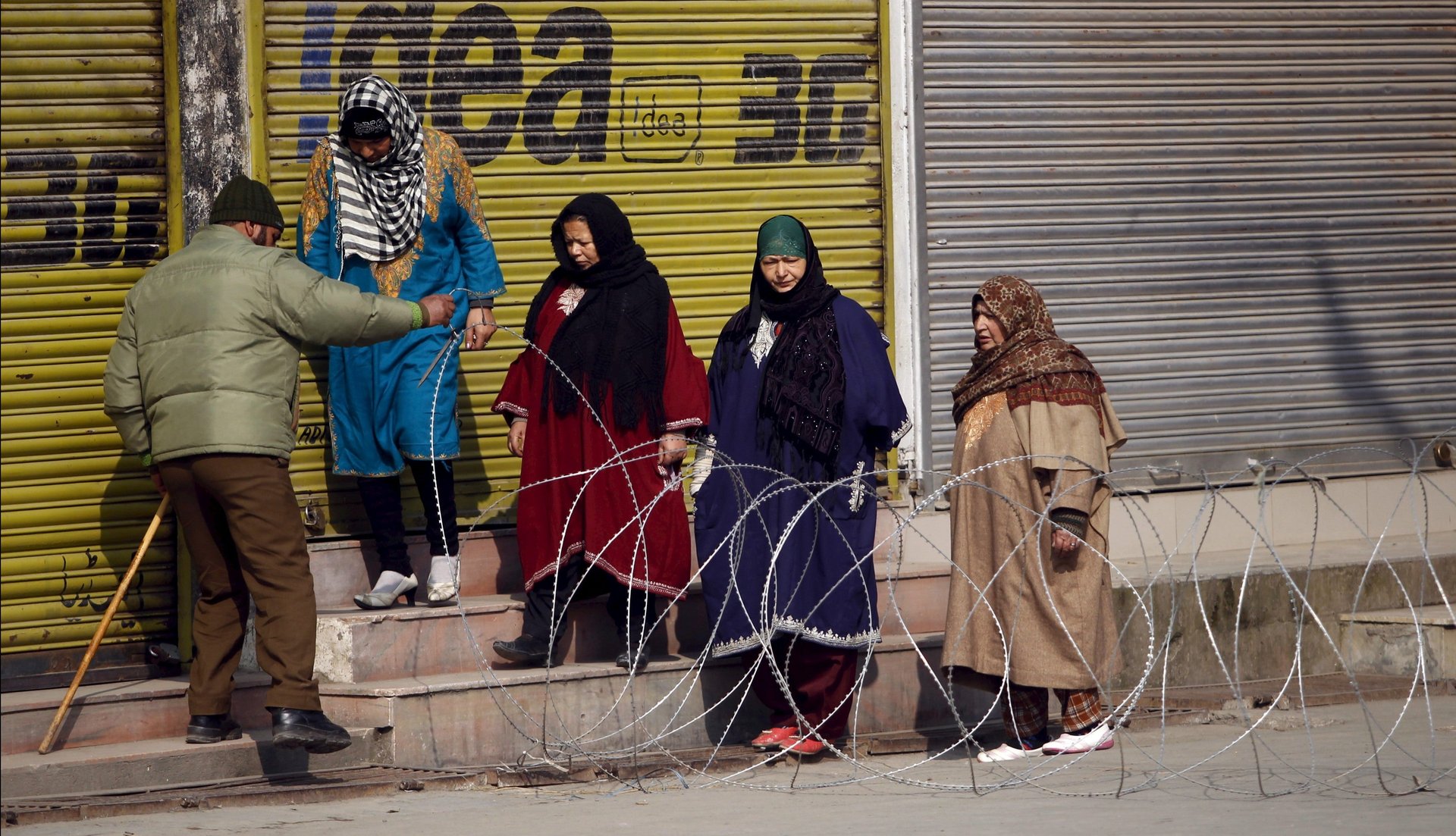After Pulwama attack, Indians vent their anger at Pakistan, ethnic Kashmiris, and media
Indians are seething over last week’s deadly attack on a paramilitary police convoy in Jammu & Kashmir. And at least a section of them—within India and abroad—have assumed a vicious stridency against just about anyone who doesn’t toe their line in the aftermath of the attack.


Indians are seething over last week’s deadly attack on a paramilitary police convoy in Jammu & Kashmir. And at least a section of them—within India and abroad—have assumed a vicious stridency against just about anyone who doesn’t toe their line in the aftermath of the attack.
Over 40 personnel of the Central Reserve Police Force (CRPF), in charge of security in the restive state, died in Pulwama town on Feb. 14 after a local cadre of the Pakistan-based terrorist outfit, Jaish-e-Mohammed, rammed his improvised explosive device-laden SUV into a bus ferrying them.
The incident, coming just weeks before the Narendra Modi government’s term comes to an end, has flared up tempers, with a section of the Indian public demanding punitive action against Pakistan.
What is alarming, however, is a wave of sharp reactions ranging from non-cooperation to intimidation and violence being unleashed against many groups of people, both online and offline. Those at the receiving end include ethnic Kashmiris living in other parts of India, Muslims, media professionals, others who advocate a less-strident approach to the issue—and, of course, Pakistanis, particularly in the case of the Indian diaspora.
For instance, a cultural event, IndoPak: Beyond Borders, originally scheduled for Feb. 24 at the Pennsylvania State University, had to be cancelled after the Indian Culture and Language Club (ICLC) refused to co-host the event with the Pakistan Students’ Association in the wake of the Pulwama attack. ICLC is a grouping of Indian international students on the campus.
In London, members of the Indian diaspora held protests against Pakistan over the weekend. What was disconcerting, however, was that Radhika Iyer, the city correspondent of the Indian news channel, NDTV, claimed to be the target of angry barbs from the protesters.
NDTV has been for long been perceived as being critical, or at least not toeing the editorial line considered favourable to India’s Hindu nationalist government led by Modi. Anchors and journalists associated with the channel currently and in the past have been often been attacked on social media. A case of financial impropriety being probed against the channel is viewed by a section of Indians as the government’s attempts at intimidation.
Other, more brazen, incidents, too, have been reported from some parts of India since the Pulwama attack.
For instance, Kashmiri traders were attacked in Patna, capital of the north Indian state of Bihar. “A number of men wielding sticks, gathered outside my shop. They raised slogans. I didn’t even know about Pulwama attack then. But they destroyed the goods and beat me and the workers,” Bashir Ahmed, one such trader, told NDTV.
Reports have emerged of students being targeted. In Dehradun, capital of the northern Indian state of Uttarakhand, hundreds of such youngsters were reportedly living in fear—some have even fled—of protesting mobs led by Hindu nationalist extremist groups like the Bajrang Dal. Two institutes in the city have reportedly “undertaken” not to admit students from the strife-hit state beginning from the next academic session.
In New Delhi, too, ethnic Kashmiris have expressed anxiety over being viewed with suspicion.
“Hindutva crowds are taking out rallies in Muslim areas and in front of Muslim homes in mixed population areas, raising provocative slogans,” the Delhi commission for minorities said on Feb. 16 in a letter written to the Delhi police.
Such widespread expression of hate against Kashmiris has also prompted many to open the doors of their homes for those fearing trouble.
Earlier, on Feb. 16, Rahul Roushan, CEO of the right-wing website OpIndia tweeted his suggestion to India’s infamous cow-protection vigilantes to skip sundry lynchings and go for large-scale violence instead. On being called out, Roushan deleted his tweet. He was apparently being sarcastic about a leading supreme court lawyer’s attempts to look for the reasons behind the radicalisation of the Pulwama bomber. The vigilantes, or gau rakshaks, have in the past indulged in extreme violence against those they allege to be cattle smugglers, who in most cases are Muslims.
The prime minister is yet to issue an appeal for calm, as is customary, during such testing times. Disturbingly, the Pulwama bomber’s statement, video-recorded before his death and published on Feb. 14, reportedly called for communal discord in India.